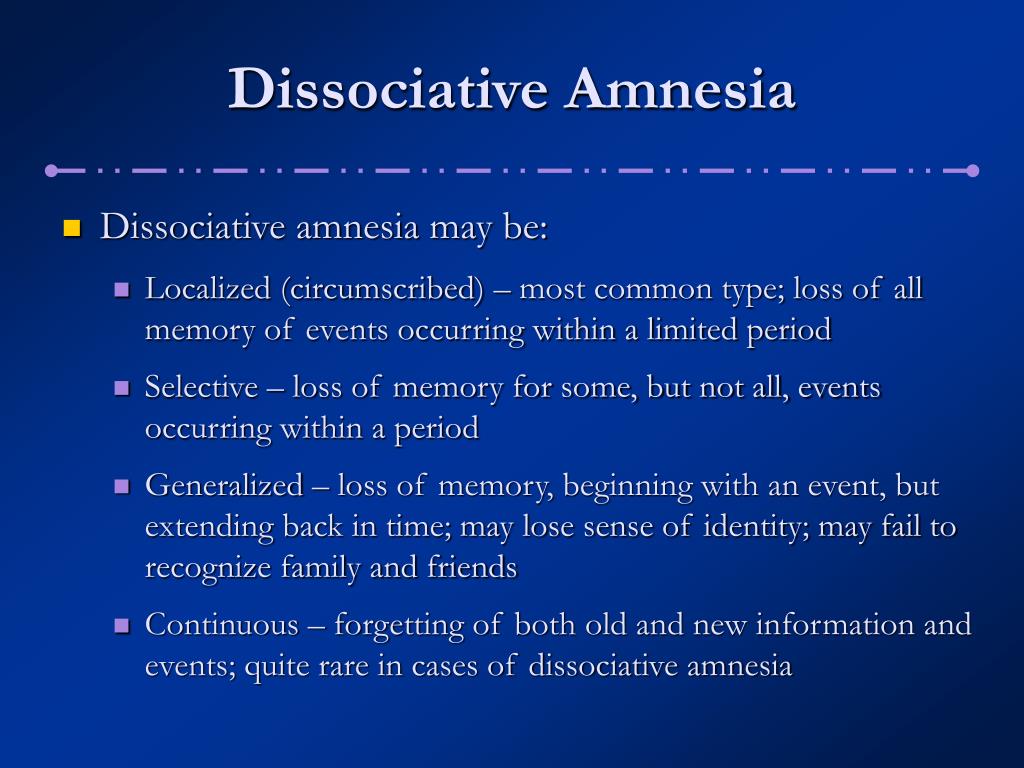
If your partner has a dissociative disorder or other mental health disorder involving dissociation, they are at risk of compounding pain and distress until they receive the necessary treatment. Symptoms, which can be profoundly distressing, may last only a few moments or come and go over many years. The sort of dissociative disorder you have influences your symptoms, which can range from amnesia to alternate identities. The symptoms of dissociation can be overwhelmingly distressing as one is in a constant struggle with trauma altered reality. You may experience depersonalization, derealization or both.

Other people and things around you may feel detached and foggy or dreamlike, time may be slowed down or sped up, and the world may seem unreal (derealization).
#Signs of dissociative amnesia movie
This involves an ongoing or episodic sense of detachment or being outside yourself - observing your actions, feelings, thoughts and self from a distance as though watching a movie (depersonalization). People with dissociative identity disorder typically also have dissociative amnesia and often have dissociative fugue.ĭepersonalization-derealization disorder. There also are differences in how familiar each identity is with the others. Signs and Symptoms The following signs may be ways that the emotional impact of childhood trauma can present. Other causes may include: extreme feelings of shame or embarrassment. Extreme bullying Refugee trauma Natural disasters Almost half of the children in the United States are exposed to at least one ACE throughout their lives. Each identity may have a unique name, personal history and characteristics, including obvious differences in voice, gender, mannerisms and even such physical qualities as the need for eyeglasses. A common cause of dissociative fugue is severe sexual trauma of some sort. Dissociative amnesia may be linked to other. This type of amnesia can last from a few days to one or more years. You may feel the presence of two or more people talking or living inside your head, and you may feel as though you’re possessed by other identities. This is also known as psychogenic amnesia. Formerly known as multiple personality disorder, this disorder is characterized by “switching” to alternate identities. An episode of amnesia usually occurs suddenly and may last minutes, hours, or rarely, months or years.ĭissociative identity disorder. It may sometimes involve travel or confused wandering away from your life (dissociative fugue). Dissociative amnesia can be specific to events in a certain time, such as intense combat, or more rarely, can involve complete loss of memory about yourself. You can’t recall information about yourself or events and people in your life, especially from a traumatic time. The main symptom is memory loss that’s more severe than normal forgetfulness and that can’t be explained by a medical condition.


 0 kommentar(er)
0 kommentar(er)
